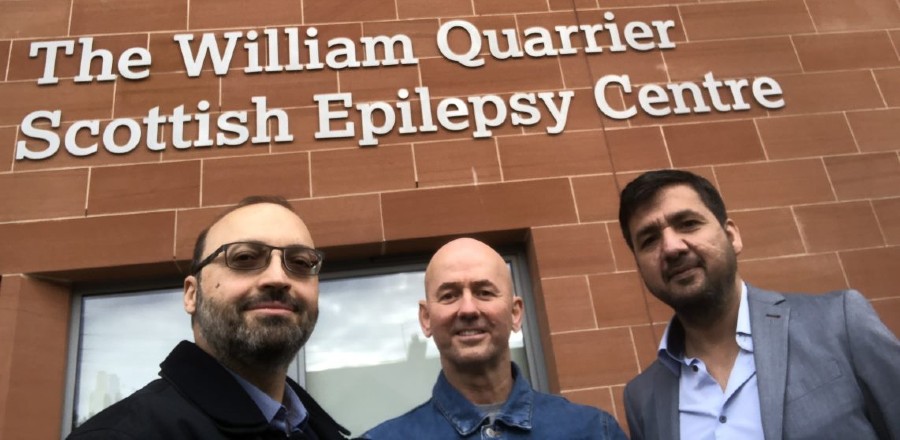Artificial intelligence tool could revolutionise neurological diagnoses

Researchers are working on a tool that could ‘transform’ the diagnosis and treatment of epilepsy and give clinicians an all-important warning ahead of an epileptic seizure.
The six-month project is being undertaken at Glasgow Caledonian University thanks to funding from Data Lab and the William Quarrier Epilepsy Centre.
Led by Professor Hadi Larijani, Director of GCU’s SMART Technology Research Centre, the researchers are aiming to create software that will save clinical specialists valuable time in diagnosing patients who are believed to suffer from epilepsy.
The researchers will conduct their study at the 12-bed William Quarrier Epilepsy Centre, using “state-of-the-art” technology.
Professor Larijani said: “Epilepsy diagnosis is a very time-consuming task. Currently, a specialist clinician sits in front of a monitor with live or saved feeds of video footage, with synchronised electroencephalography (EEG) and electrocardiogram (ECG) signals, and must manually identify any potential epileptic seizers from the data feeds. We are seeking to develop a decision-support tool that could help concurrently monitor all of the patients in the centre, thereby improving both the quality and efficiency of diagnosis; triggering an alarm or alert for seizure cases. If successful, this approach could transform the diagnosis and treatment of patients in Scotland and beyond.”
The first phase of the project will seek to prove the tool’s feasibility by taking historical data from the Epilepsy Centre and “training” its artificial intelligence software. Once successfully tested, the tool will be trialled in a live environment.
Professor Larijani added: “This approach, if successful, could be applied to stroke patients and those with other neurological diseases, as the vast majority of clinical decisions are made through the manual review of patient data.”
Dr Roland Cullen, CEO of the William Quarrier Scottish Epilepsy Centre, said: “Working in partnership with the NHS, our unique contribution is defined by our expert clinical team and our use of advanced medical technology. This allows us to provide an enhanced service that cannot be replicated by individual Health Boards. Over the last year, we have become interested in how artificial intelligence can support clinical practice, enhance diagnostic data and deliver improved patient outcomes. As such, the Executive Team at Quarriers is committed to exploring the application of these technologies and to working in partnership with the Scottish Government and academic institutions to test the applicability of new technologies within the William Quarrier Scottish Epilepsy Centre.”
The research team also includes Phd student Syed Yaseen Shah, MSc student John McMaster and consultants from William Quarries Epilepsy Centre.
